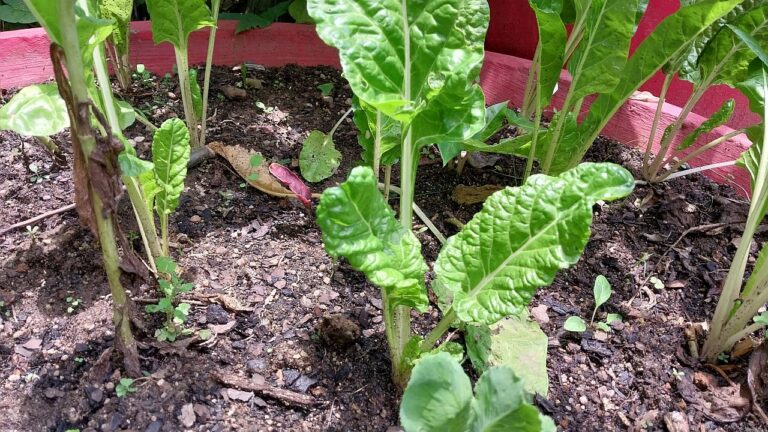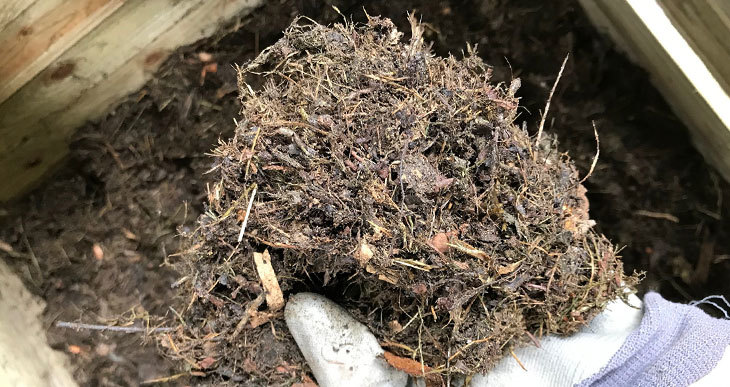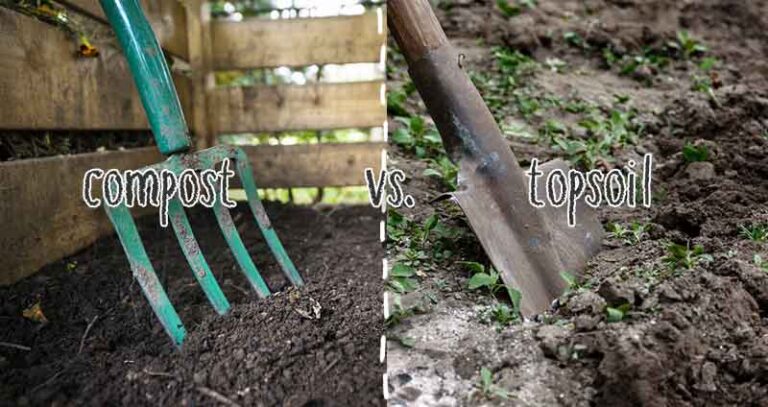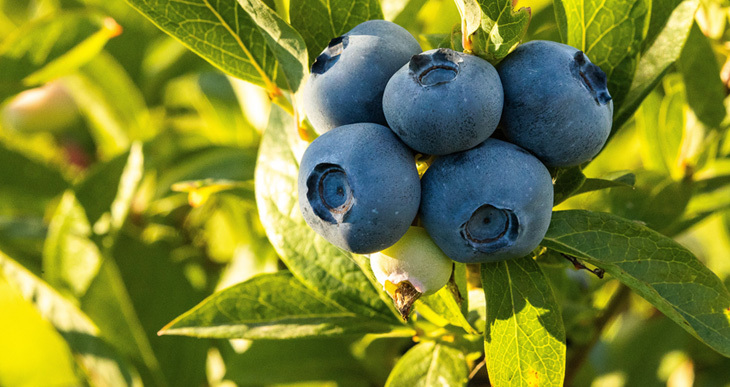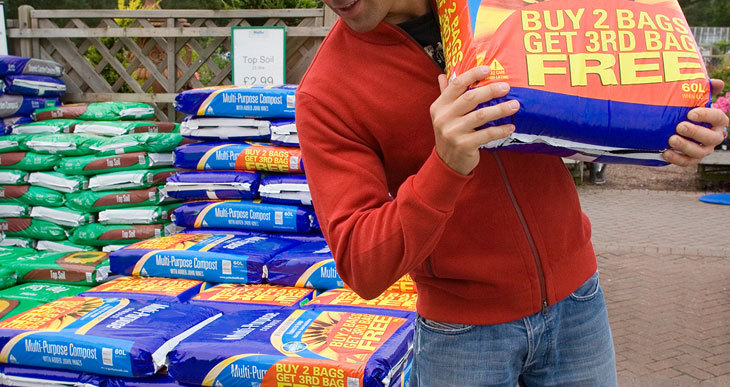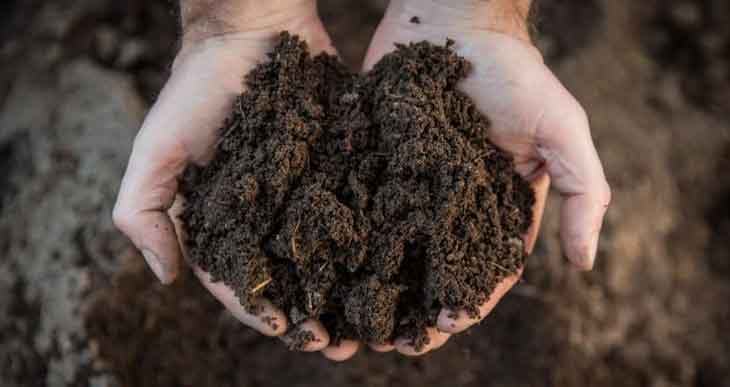Does Compost Need Sun? (How Much Sun Exposure is Beneficial)

You hear a lot of gardeners expressing concern that their compost isn’t heating up. They will go to great lengths in an attempt to maintain a hot compost pile.
Because “hot composting” is generally accepted as the “fastest” way to compost.
So heat energy from the sun can be a valuable contribution to this quest.
But does your compost really need sun?
The truth is perhaps more subtle than just exposing compost systems to as much sunshine as possible.
In the following article, I’ll explain everything you need to know…
Does Compost Need Sun or Shade?
Some sunshine can be beneficial for the composting process. Decomposition is generally more efficient when surrounding temperatures are higher. But a hot climate and sunshine do not always lead to faster decay. Therefore, the amount of sun exposure needs to be carefully balanced.
Anyone who starts composting soon learns about the two popular methods known as “cold” and “hot” composting.
The composting process goes through various stages of decomposition. Whatever the scale or type of composting, the process relies on a diverse range of microorganisms to do the work.
The initial stage happens at “warm” temperatures of around 50 to 115° Fahrenheit (10-46°C). The microbes at work during this phase are known as “mesophilic” (mid-temperature) microbes. This is the “cold composting” period.
These organisms generate heat as they consume organic materials. If the temperature increases sufficiently, then they do themselves out of a job and are replaced by another type of microbe.
“Hot composting” refers to the “thermophilic” stage of composting, where heat inside the decaying waste reaches temperatures of around 115-160° Fahrenheit (16-71°C). It’s a different type of microbes that take over at this stage.
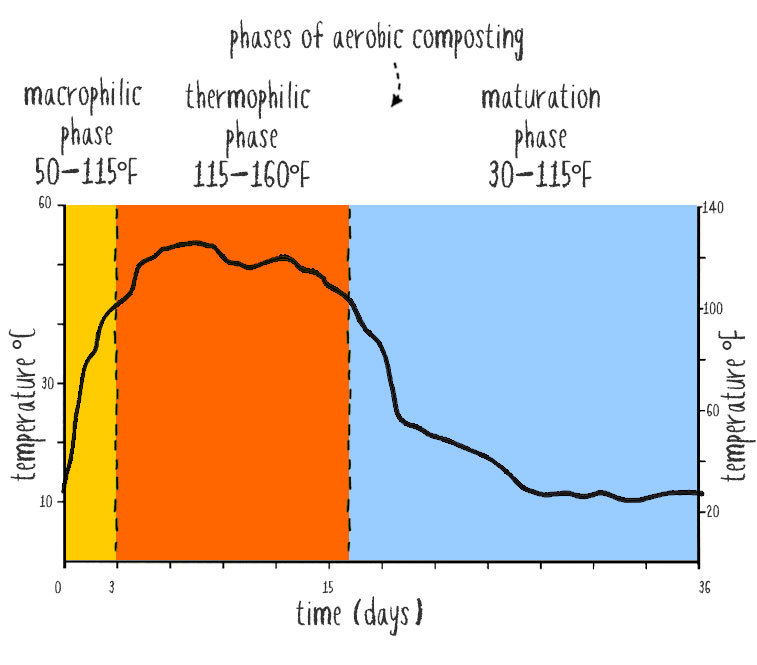
In reality, most garden compost heaps do not heat up above ambient temperatures. This means that the mesophiles play a dominant role in backyard composting.
And this is absolutely fine!
For decomposition to be effective, the compost temperature only needs to be above 55°F (about 13°C).
It is true that ambient temperatures also influence the types of microbes in a composting system.
So this means that using sunlight as a source of solar energy to help heat up compost can be helpful. But in a limited way.
Most backyard composting will benefit from a bit of sun and shade at different times.
When is Sun Useful For Composting?
Whether or not to place compost in a location exposed to sunlight needs to be carefully considered.
The sun’s energy can quickly raise the internal temperature of a compost pile. But too much sunlight can also dry out compost very quickly.
And because moisture is also an essential component for efficient composting, using sunlight can be a tricky choice.
So how do you choose whether or not to put compost in the sun?
Use Sunlight to Boost Hot Composting
If you pursue a “hot composting” technique, use the sun as an ally. Place the compost in a sunny location.
There are a couple of valuable advantages to a hot method:
- It kills weeds seeds.
- The process destroys the majority of pathogens.
- You get compost quickly.
If you’re in the habit of composting weeds, you might want to aim for a thermophilic range of temperatures.
Also, if you have diseased plants, a hot composting method will destroy the pathogens.
Like this, you won’t risk re-introducing weeds or harmful bacteria and diseases when you use the finished compost.
However, if you choose to put your composter in a sunny location, make sure to monitor the moisture level in your pile.
Compost Digesters
This is a specific type of outdoor composting system that is said to enhance the decay of organic materials.
These systems tend to be relatively small, but they are helpful for things like composting pet waste and all types of scrap food, including fish and meat.
These digesters can be placed in a central location in your backyard, where they get plenty of sunlight. They are partially buried to keep the compost insulated, and the sun’s energy helps to heat up the contents.
Use the Sun in Cool Climates
If you live in a cool part of the world, a sunny location for your composter is probably a good idea.
Remember, you don’t need to aim for extreme temperatures. Still, if you struggle to get your compost to heat up to at least 55°F, then the extra sunlight could be beneficial.
I recommend you get a simple compost thermometer to check the temperatures at the center of the compost (use one which has a long probe like this – Amazon)
Does Compost Need Full Sun?
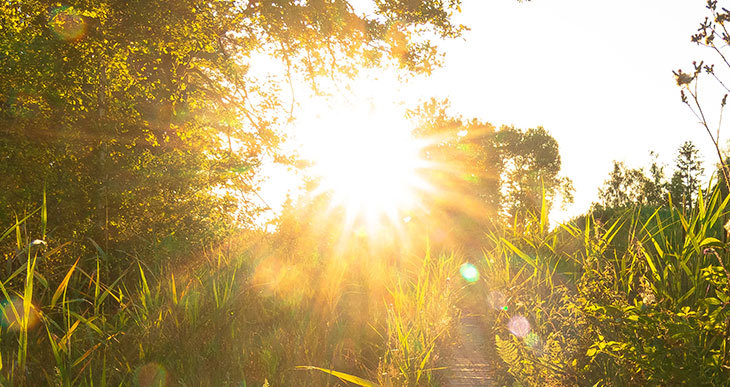
As a general rule, place your composter in a location where it gets some sunlight, but not in full sun. The solar heat can be useful in the cooler months, but direct sunlight will dry out compost rapidly.
The majority of backyard composting doesn’t need to heat up excessively for the process to be effective. A little heat from the sun is helpful in the fall and winter, but direct sunlight isn’t necessary for the summer months.
Choose a spot with some shade in the summer and a little sun in winter if possible. For example, use a deciduous tree to provide shade, and when it loses its leaves in the fall, more sunlight can reach the compost.
How Much Sun Does a Compost Bin Need?
A compost bin is a sealed container, so it has the advantage of retaining moisture better than an open pile. And a lot of bins are designed with darker colors to more easily absorb solar energy.
Therefore a sunny placement for a compost bin can be beneficial.
However, you will need to keep an eye on moisture levels during the warmer months.
A simple compost moisture meter like this one is helpful to have on hand.
If you notice a drop in humidity, add some water or more “green” materials, which naturally contain more moisture.
How Much Sunlight Does a Compost Pile Need?
It’s generally recommended to avoid putting a compost pile or heap in a sunny location. Because these systems are open to the elements, they lose moisture quickly by evaporation. In addition, the sun will dry out the heap very quickly.
You can also cover a compost pile to help keep some moisture in.
Does a Compost Tumbler Need to Be in The Sun?
Just like compost bins, tumblers are closed containers that retain moisture well. As a result, they can benefit from a sunny location, but perhaps not direct sunlight.
Some tumblers are also easier to move around (like the Mantis back porch composter).
You’ll be able to move this into direct sunshine in the cooler months and tuck it away in a shaded spot during the summer.
Conclusion – The Sun and Compost
Sunlight can sometimes be a helpful contribution to composting. By increasing the temperature inside a composter, you can improve conditions for the composting microbes to do their work.
However, you don’t need to pursue the hottest conditions for effective composting.
Compost naturally goes through different phases of decomposition, and “hot” temperatures will not last very long in a backyard composter.
Remember that lower temperatures also allow the compost to go through a final phase of maturation which is needed to produce finished compost. In the final cooler stages, fungi and microorganisms like worms and other insects help the composting process.
If the compost is too hot, these organisms cannot exist!


